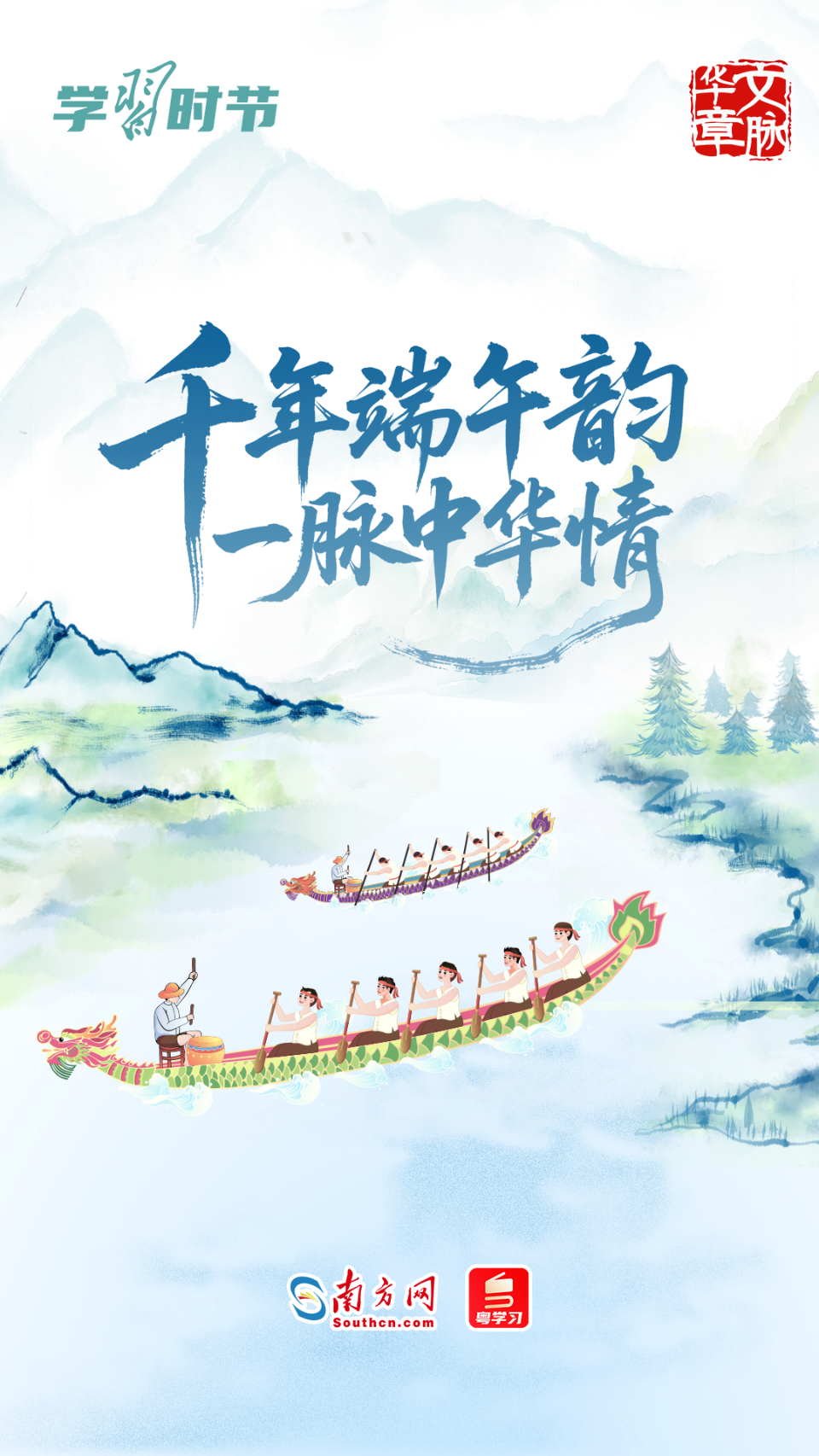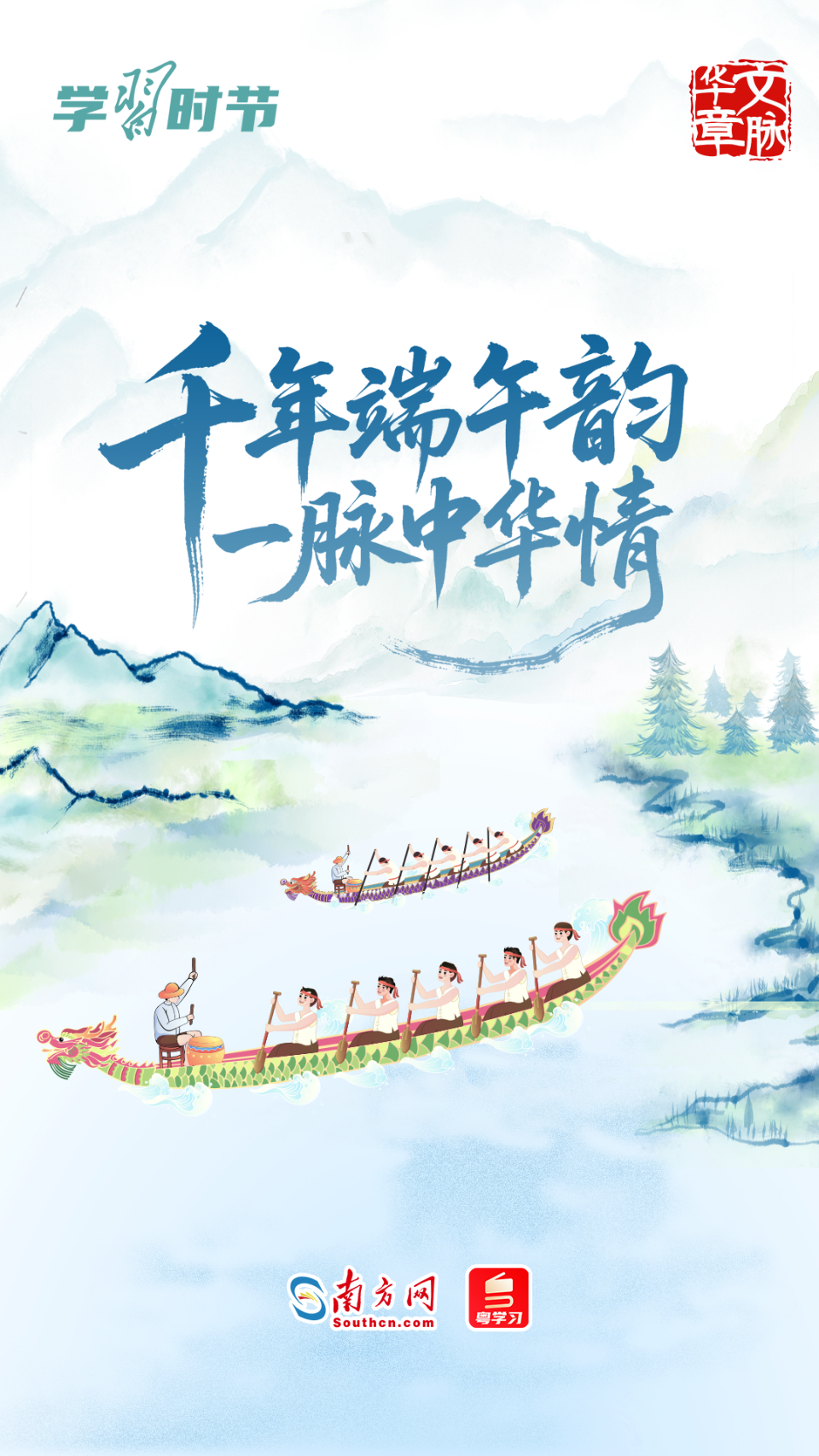
At Dragon Boat Festival, the aroma of zongzi fills the air, and dragon boats race across the water.
Central to Chinese culture, its history is profound and its civilization vast. The Dragon Boat Festival is one of the four major traditional festivals of the Chinese people, with a history of over 2000 years. Although local customs vary, unique festival rituals rooting from Chinese cultural genes, such as making zongzi, dragon boat racing, hanging mugwort, and tying five-color strings, encapsulate classical verses like “The road is long and arduous, I shall seek truth above and below,” creating a shared cultural memory for the Chinese community about the Dragon Boat Festival, becoming a cultural thread that strengthens the unity of the Chinese nation.
President Xi Jinping pointed out that the continual development of civilization requires both the ignition of passion across generations and the need to adapt to the times and innovate. Last year, the fiery excitement of Foshan Nanhai’s Shunde Dragon Boat, with its “Water F1” prestige, attracted over 200,000 citizens and tourists; the Guangzhou Opera House, using dance as a medium, produced China’s first reality-based work with a dragon boat theme— “Dance Drama Dragon & Boat,” narrating the stories of young adventurers striving for national glory, showcasing the spirit of contemporary Chinese youth sharing prosperity… The collision of tradition and modernity propels the creative transformation and innovative development of outstanding Chinese traditional culture, allowing the Dragon Boat Festival, a historic festival, to continue dazzling in the continuous flow of cultural tradition.
The Dragon Boat Festival is also China’s first festival to be included in the UNESCO Intangible Cultural Heritage list. As rivers and streams across the nation are swept up in the “dragon boat frenzy,” countries like Germany, Serbia, and Argentina also successively organize dragon boat races, attracting a multitude of foreign participants. The Dragon Boat Festival, as a representative of Chinese intangible cultural heritage, has become a symbol of Chinese culture universally accepted, recognized, and admired worldwide, presenting the profound heritage and unique charm of Chinese culture to the world.




